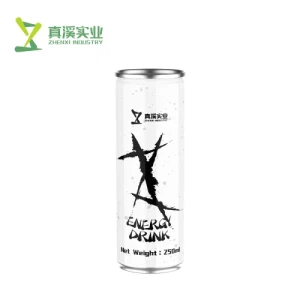To maintain their quality, beverage suppliers follow a long list of strict protocols. Frequent product testing: One of the most important techniques entails strict quality control processes, so as slow production. For example, a top beverage manufacturer may perform microbiological testing on all of their batches to guarantee that the result not only meets health standards but also is safe. Heavy testing like this is crucial because it deepens the company's understanding of all potential contaminants upstream, before they manifest themselves in an unsafe product on a store shelf.
Use of modern technology in production and packaging is an another major cause. Many suppliers produce cutting-edge technology that retains the exact temperature and humidity needed for beverages to exude their flavors; this also helps them maintain freshness. The success of automated systems goes unmatched as they can monitor and adjust these parameters for real-time, reducing the scope of error drastically. A Protfor example would specialize in chlorinator cells or pool cleaners, whilst a Distributor might invest more heavily into high end filtration such as 99.9% pure water.
Traceability is a crucial quality assurance element. Suppliers can offer customers different barcodes and RFID tags on each ingredient, key components with a produce number that leads to an exact source of origin throughout the supply chain. This traceability allows problems to be quickly traced back up the process. An infestation happens and the supplier can monitor it down to a particular batch or provider, permitting for rapid targeted action.
Similarly suppliers also comply industry standards and certifications, claiming their quality.Class 1 - Urgent.Intermediate in terms of time required. ISO 22000 and HACCP are examples of certifications which define very strict rules for the areas. Those certifications show the commitment of a supplier on demanding standards. A supplier that has an ISO 22000 certification reflects their commitment to food safety and quality management systems, guaranteeing customers they can rely on the consistency.
Periodic audits and inspections are critical to the upkeep of quality standards. Suppliers are audited, frequently both internally and by a third party, to confirm they comply with relevant industry regulations as well as the internal quality policies. Inspections reviewed factors such as hygiene, maintenance of equipment and staff training An alcohol distribution company must have compliance from a third-party auditor to reach scores of 95 percent or higher, indicating an attempt to consistently uphold top-tier quality.
That is where you see the importance of employee training and involvement in quality assurance. To stay current with the latest quality control techniques and best practices within the industry, suppliers commit a significant amount of time to complete ongoing training programs. A properly trained workforce will be able to spot and correct possible problems, which saves the quality at all the stages of production. For example, a supplier training their employees quarterly to make sure everyone understands what is required and possess the basic knowledge/skills sets needed in order for quality standards to be fulfilled.

Also, the methods of customer feedback helps suppliers to uphold with high standards and quality. How to Detect the Problem Sources Actively looking for customer feedback and evaluation can help suppliers hone in on problem areas. This is an excellent example of a supplier with commitment to continual improvement and customer satisfaction, as evidenced by that 20% reduction in customer complaints over six months!
Quality assurance is improved by research and development (R&D) efforts. Suppliers invest in R&D to develop and improve their products. This can result in new formulas or packaging solutions that improve the quality and shelf life of a product. Most notably, a preservative-free beverage line added by suppliers in response to consumers seeking out natural products is the perfect example of their drive for innovation and commitment to quality.
Whether or not you take quality into account whilst sourcing raw materials is paramount as the key to a great beverage rests in the sheer basics of what goes into it. They build long-term relationships with some of the best suppliers for your ingredients to guarantee that those raw materials will be consistent and high quality. Beverage suppliers can ensure from early in their production process that the ingredients they are using come from certified organic farms or verified suppliers and meet high quality standards.
To summarize, a beverage supplier maintains high standards through stringent quality testing and verification process, state-of-the-art technology in manufacturing facilities, traceability mechanism across all operations conforming to leading global food safety management systems (FSMS), top-rated certifications for health & hygiene practices at work places as well as third-party audits by internationally acclaimed certification bodies timely employee training on enriched valued trade-practices & mechanisms; ongoing customer feedback processing system that aids data based predictive analysis led new offerings design while risk-factored rewarding mechanisms are integral part of R&D processes line addition / elimination besides sourcing finest ingredients available. In sum, these activities are designed to preserve both the purity and high standards of their product; i.e., all is being done so that when you taste a beverage made by them, it lives up to your trust in what brand-produced means.